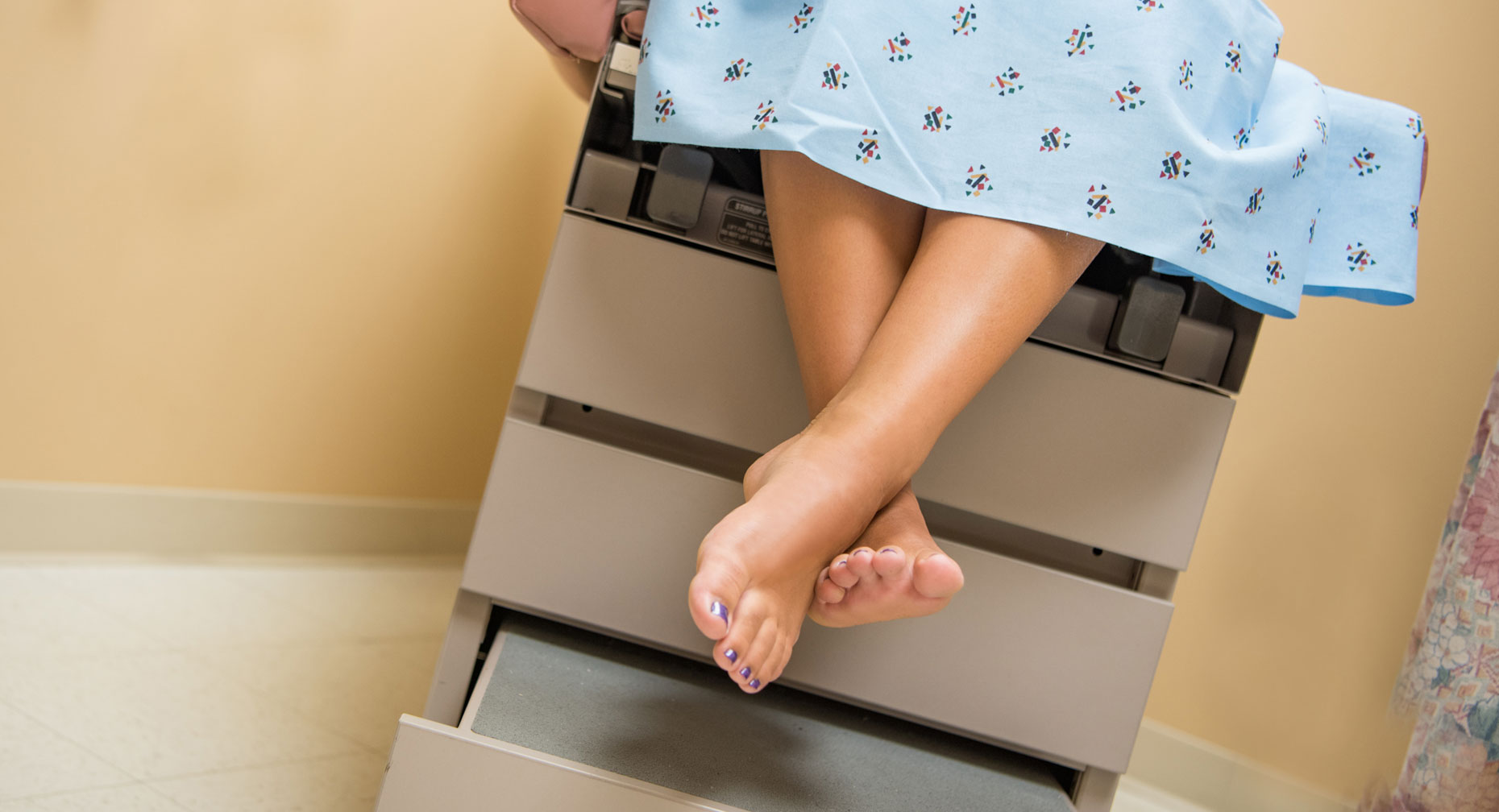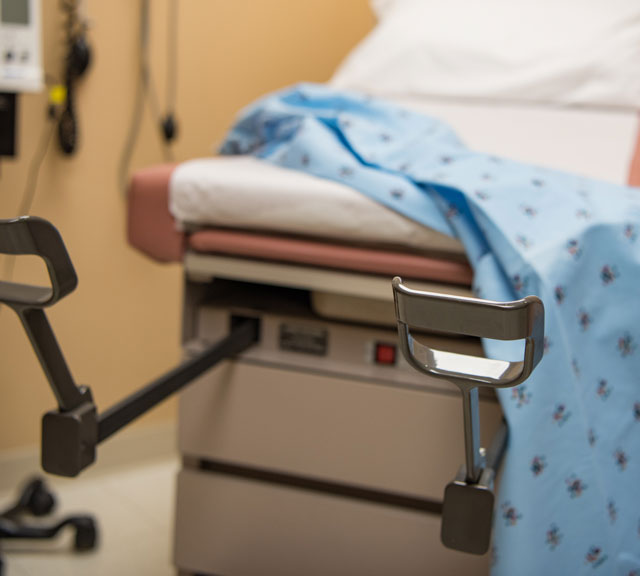Worth the Scooch: Pap Test Still the Gold Standard

Find Your Perfect Match
Answer a few questions and we'll provide you with a list of primary care providers that best fit your needs.
The Pap test gets a bad rap. Sure, no one revels in the idea of lying on your back with your feet in stirrups on the edge of an exam table. But compared to our grandmothers and their mothers, we should consider ourselves lucky to have access to such an easy and important cancer screening tool.
The test, also known as a Pap smear, is your best defense against cervical cancer, which if found early, is highly treatable. Your doctor performs the quick, non-painful test during a pelvic exam by collecting a few cells from your cervix. The cervix is the lower part of your uterus that leads to your vagina. She then sends the cell sample to a lab, which checks for cervical cancer or changes in cervical cells (dysplasia) that could lead to cervical cancer.
Why Get Screened?
Screening saves lives. This is especially true for cervical cancer, which is one of the most serious types of female cancers.
Here are three reasons to get regular Pap tests:
- Screening can find abnormal cells before they turn into cancer.
- Treating abnormal cervical cells can help prevent most cervical cancers from developing.
- Pap tests can also diagnose serious infections and pelvic inflammation.
To help your medical team obtain the most accurate test results, refrain from the following two days before your exam:
- Tampons
- Vaginal creams, suppositories or medicines
- Vaginal deodorant sprays or powders
- Sex
- Douching
The test, also known as a Pap smear, is your best defense against cervical cancer, which if found early, is highly treatable.
What Does an Abnormal Pap Result Mean?

Your health care provider should notify you of your test results. If you have an abnormal Pap result, it does not automatically mean you have cancer. An abnormal result may be caused by an infection, healing or other benign changes.
Your provider may order a repeat Pap test sooner than would otherwise be required, or additional tests to confirm results or to get a closer look at abnormal cells.
One of the most common reasons for an abnormal Pap result is HPV (human papillomavirus) infection. So take your test results one step at a time and discuss them with your provider. Avoid jumping to a worst case scenario.
Who Should Be Screened?
The American College of Obstetrics and Gynecology (ACOG) recommends that women begin screening for cervical cancer at age 21. Screening may be combined with HPV testing, depending on age. For most women ages 21 to 29, the recommendation is every three years. For women ages 30 to 65, the recommendation is every three to five years. After age 65, women with a history of normal Pap test results no longer need screening.
The American Cancer Society recommends that screening for cervical cancer begin at age 25. Women ages 25 to 65 should have a screening HPV test every five years. If this test is not available, screening may be done with either an HPV and Pap test every five years, or a Pap test alone every three years. Those over age 65 with a history of normal results should stop cervical cancer screening.
Talk with your health care provider about the schedule that’s right for you. Remember, the point of a Pap test is to identify changes in early, in the precancerous state, when they can be treated more easily.
Find Your Perfect Match
Answer a few questions and we'll provide you with a list of primary care providers that best fit your needs.
Source: Interstitial Cystitis Association; Urology Care Foundation; National Institutes of Health




